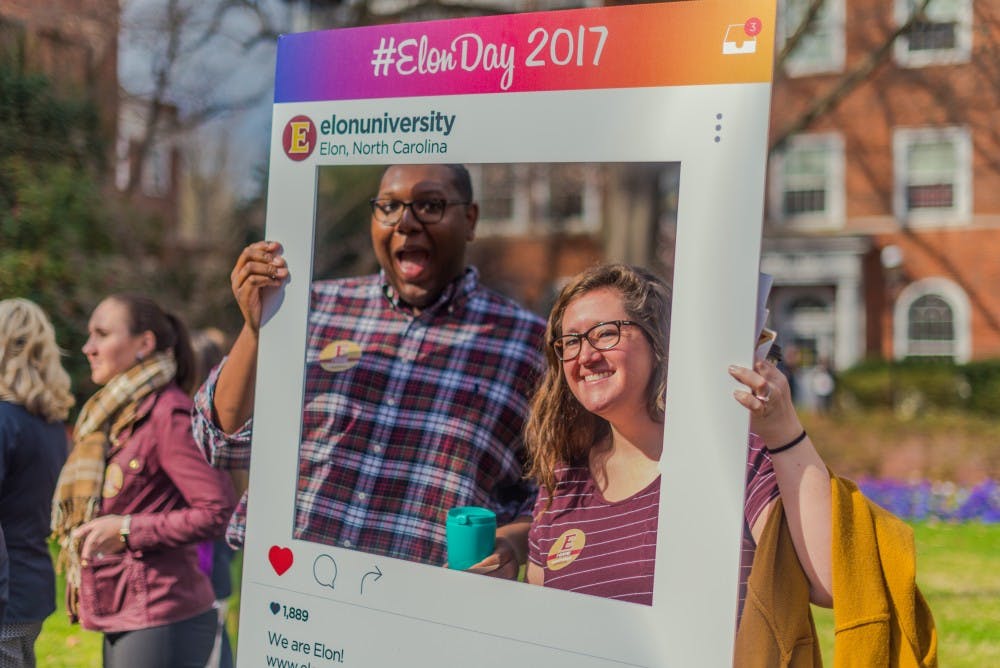A phone call is no longer the most efficient way to contact an Elon University alumnus.
According to Tricia Teter ’13, alumni engagement officer at the Martin Alumni Center, new methods of outreach, such as sending text or video messages, have proven to be more successful than just phone calls.
For the past seven years, Elon has committed to improving its alumni network, and the results are being nationally recognized. A recent article in The Chronicle of Higher Education holds Elon University as “an example of new thinking around alumni affairs” and highlights the university’s efforts to be “hands on and personal” with its young alumni.
The sixth theme of the Elon Commitment Strategic Plan, “developing innovative alumni programs to advance and support the Elon graduate,” echoes this high praise.
Some of the key objectives of this theme are to launch a new alumni service and engagement programs and to promote a culture of philanthropy within alumni.
As a result of this, the university has made efforts to increase alumni engagement with the opening of the Martin Alumni Center and the development of new staff roles, such as Teter’s, along with new programming. There are three alumni engagement officers — Teter, Matthias Bouska ’16 and Conner Croxson ’15.
“Alumni engagement officers provide an individual point of contact for our alumni,” Teter said. “Our alumni engagement officers help to spread the partner, advocate and investor message individually to alumni across the country.”
Besides the partner, advocate and investor message that seeks alumni participation, another way Elon seeks alumni participation is by traveling to visit alumni in their regions. Teter, along with the two other alumni engagement officers, explained there are 37 alumni chapters in the United States and one in London. These chapters host different ways for alumni to network and socialize while continuing to interact with the university.
Brintha Renganathan ’16 is part of the Atlanta alumni network and finds out about local alumni events through Facebook and email. She feels connected to Elon through social media posts of current students.
“I would feel much more connected to the school if I continued to get alerts on campus issues or innovations,” she said.
For Renganathan, the most important thing for her is to give back enthusiasm, support and advice to current students and alumni.
“There is a connection between all Elon students, alum and faculty, and it is super important to keep those connections alive once you graduate,” Renganathan said. “Especially in Atlanta, it is not often that you run into other Elon students, so enthusiasm is important to get together at alumni events when possible.”
Teter believes that individual relationships, such as the one Renganathan has with her alumni network in Atlanta, increase involvement. By developing relationships like these, alumni engagement officers are able to assist alumni in staying involved in regional events, volunteer opportunities and philanthropic campaigns.
One of the largest alumni engagement campaigns is Elon Day. This year’s Elon Day featured 37 events throughout all of the chapters. There will also be secret donation challenges that will take place.
“These challenges encourage giving because every donation leads to a bigger impact for Elon,” Teter said. “We want to remind people that we are Elon, and that any part we play, no matter how small, in Elon Day contributes to something much bigger — to the success of Elon, a place that we all call home.”


